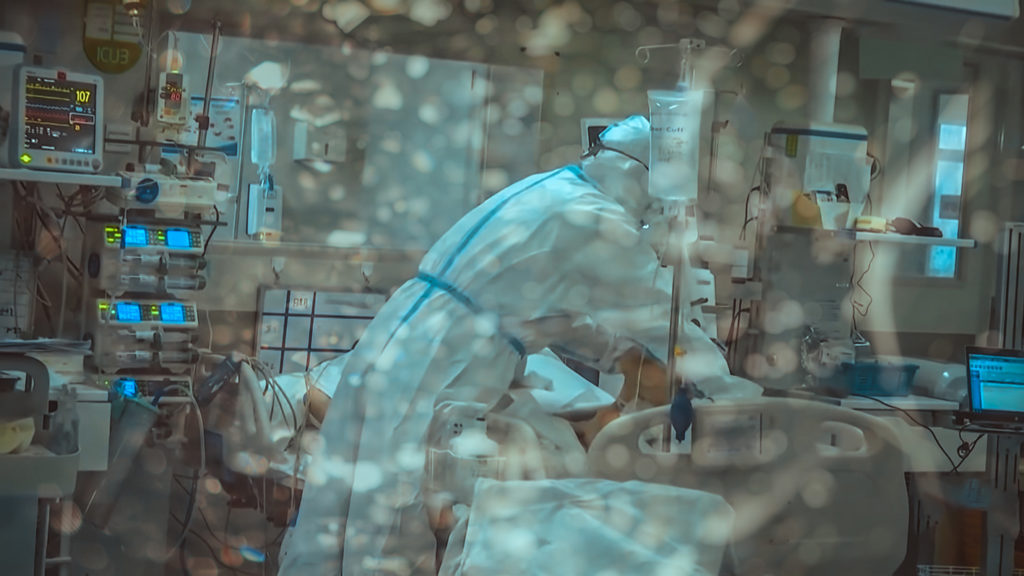Organic and existential life
Organic and existential life
What is it to live? Every day, doctors are taking care of our health and our lives. Usually, those doctors work in hospitals with a chaplaincy. But during the Covid-19 pandemic, such chaplaincies in hospitals, nursing homes, and jails have been closed. However, life is not only organic.
Biblical tradition
In Luke 21,1-4, Jesus looks at people giving offerings in the temple treasury. Among them, a poor widow gives two tiny coins. Jesus concludes by saying she has given the whole of her life. Elsewhere, Jesus tells he is the bread of life[1]. Two Greek words are translated into ‘life’: βίος (bios) and ζωη (zoè). ‘Bios’ means “life in itself, existence, length of the life, possessions” while ‘zoè’ means “life, breath of life.”[2]
Both kinds of life are important in the Bible. Jesus takes care of the biological life of the people he meets: he heals the sick and gives bread to the hungry. Organic life is a priority in the Bible: first give bread to the hungry, then tell them about eternal life. Eternal life is an article of faith of the Christian faith. It is a promise for the afterlife, but it is also a way of living on earth. ‘Zoè’ means “breath of life,” which means that without it life is not possible. This kind of life is essential.[3]
Relational life is essential
A legend says that king Frederick II, in the 13th century, started an experiment that turned into a disaster. In order to know which language is natural to humankind, he ordered the taking care of six infants without talking to them. Those children never spoke, and quickly died.[4]
After months without visits, older relatives regularly have trouble recognising their family. From this point, such people do not live very long, and miss a central point of humanness. Without human relations, life is diminished. Those relations are part of the spiritual life, ‘zoè’.
What was essential during the quarantine?
During the coronavirus crisis, priority is given to healing sick people, taking care of the ‘bios’, which is a good thing. But this is, in France, without any chaplaincy: the spiritual life is set aside. This means that in our society, we live as if organic life were the only essential life. Moreover, in order to preserve the life of a sick person’s relatives, they are not allowed to meet, and if this person dies, only very few people can mourn together. As a consequence of the centrality of biological life, death is privatised and made invisible. How difficult it is to mourn in this situation!
Technocracy and spiritual life
Eternal life begins on earth. It is a life of relation with one’s Creator, but also a life related to other people. When technocracy considers that life is only biological, a fundamental dimension of humanness is forgotten. Both lives are linked together, for sure, but we should never forget that life is more than mechanics.
Emilie Eyer
Do you want to stay updated on the latest news on religion & society? Create an account on the EARS Dashboard and receive free weekly updates.
[1] John 6, 38.
[2] Greek-French Dictionary Le Bailly, 2000, Hachette Education ; Dictionnaires grec-français du Nouveau Testament, Alliance Biblique Universelle.
[3] “Vie éternelle” in Dictionnaire critique de théologie, J-Y Lacoste (dir), Paris, PUF, 1998.
[4] Quelle est la langue naturelle de l’être humain?






